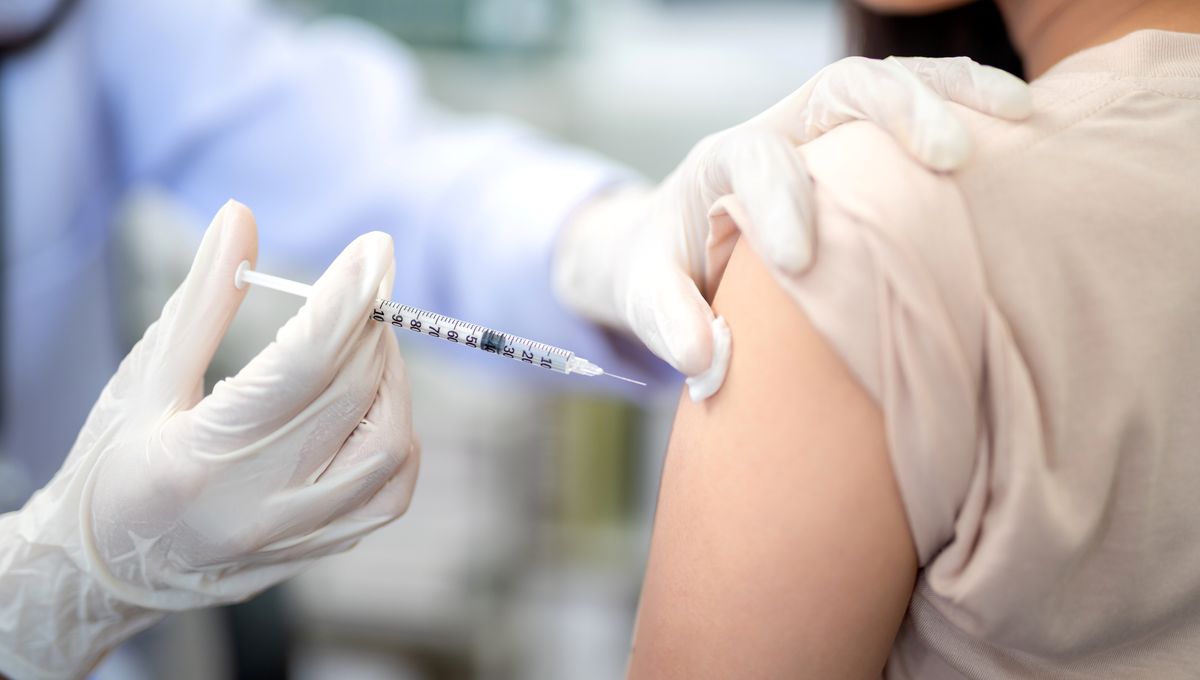
With the ongoing outbreak of measles in Texas, vaccines are on a lot of people’s minds – and in particular, whether or not they need another one. Measles is just one of the diseases vaccinated against in childhood, but do any of those vaccines need a boost when you get older?
ADVERTISEMENT
The answer to that question depends on the particular vaccine, so let’s go through some of them to find out.
Measles, mumps, and rubella (MMR) vaccine
The MMR vaccine is given in two doses; the Centers for Disease Control and Prevention (CDC) recommends that the first is given between 12 and 15 months old, and the second between 4 and 6 years old.
As long as someone has had both doses, they’re considered to be protected for life against measles and rubella. Immunity against mumps can wane over time, but that doesn’t necessarily mean you need a booster – it’s generally only recommended if you’re particularly at risk for mumps.
There are some older individuals who might not have had the MMR vaccine, but as long as they were born before 1957, the CDC says they don’t need to get one. That’s because of something called presumptive immunity, and it’s based on the fact that before this date, nearly everyone was infected with measles, mumps, and rubella viruses during childhood, and therefore likely has natural immunity against them.
Tetanus, diphtheria, and pertussis vaccines
Vaccines against tetanus, diphtheria, and pertussis (whooping cough) are pretty frequent during childhood, and it’s recommended to get boosters throughout adulthood too.
In childhood, it starts with five doses of the DTaP vaccine (a combined vaccine that protects against all three diseases) given at 2, 4, and 6 months old, between 15 and 18 months old, and between 4 and 6 years old. Then, a single dose of another combination vaccine, Tdap, is given between 11 and 12 years old.
ADVERTISEMENT
After that, it’s recommended to get a booster of Tdap every 10 years – so, if you had it at 11, you’ll next need one at 21, 31, and so on. It’s also suggested that people should receive a dose of Tdap during each pregnancy too, usually when they’re between 27 and 36 weeks pregnant.
Meningococcal vaccines
There are a number of other vaccines that are part of the CDC’s recommended childhood vaccination schedule that generally don’t need to be boosted during adulthood, including the human papilloma virus (HPV), Haemophilus influenzae type b, hepatitis A, hepatitis B, pneumococcal, poliovirus, rotavirus, and varicella vaccines.
Meningococcal vaccines (which protect against bacteria that cause meningitis) are usually included in that list too, except for in particular circumstances. Situations where a booster might be recommended include if someone is: a microbiologist working with the bacterium Neisseria meningitidis; joining the military; traveling to a country where certain types of meningococcal disease are more common; starting college; or are part of a community where there’s an outbreak.
What if I don’t know my immunization history?
Remembering when you had a particular vaccine and so figuring out whether or not it’s time for a booster is easier said than done. That’s where medical records come in – they usually provide a detailed account of someone’s immunization history.
ADVERTISEMENT
However, there are a whole host of reasons why someone’s medical records might not be available. Though it’s the only surefire way to know whether or not you’re up to date on your vaccines, a healthcare provider might be able to do a blood test to check for immunity.
All “explainer” articles are confirmed by fact checkers to be correct at time of publishing. Text, images, and links may be edited, removed, or added to at a later date to keep information current.
The content of this article is not intended to be a substitute for professional medical advice, diagnosis, or treatment. Always seek the advice of qualified health providers with questions you may have regarding medical conditions.
Source Link: Do Adults Need To Get Boosters For Childhood Vaccinations?